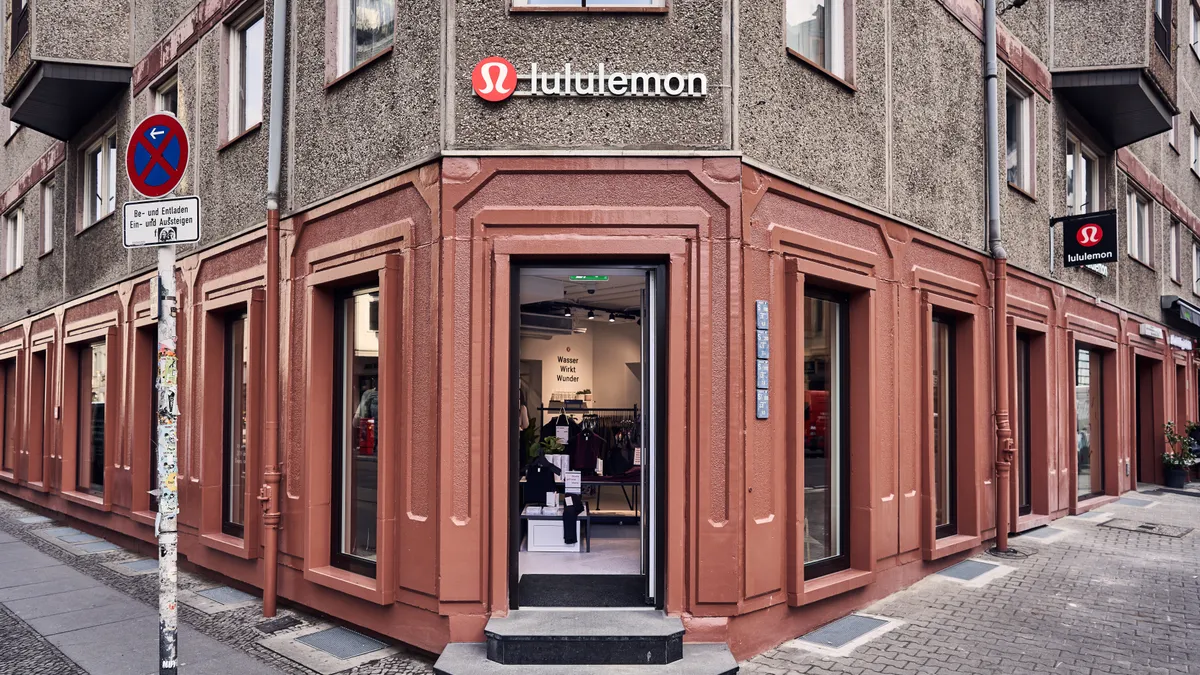Dive Brief:
- Lululemon will maintain operations in "key e-commerce DCs" with social-distancing and health monitoring measures in place, as well as restaffing some stores to fulfill e-commerce orders starting this week, executives said on an earnings call Friday. The retailer's North American and European stores have been closed since March 16.
- Previous investments in RFID inventory tracking will enable the flexible e-commerce fulfillment model and allow Lululemon to proactively manage inventory trough this indefinite, dramatic drop in consumer demand, executives said. "Our technology with the use of RFID we can access product at any point across our network, not just DCs but at our stores as well from ship from store," said CEO Calvin McDonald. "So it allows us to just regulate demand that we are seeing today online."
- The retailer will push back supplier orders when necessary to keep inventory appropriately low. "We have flexibility with regard to our fall and winter 2020 receipts and where appropriate can push out or reduce our buy orders," CFO Patrick Guido said.
Dive Insight:
Toward the end of 2019, Lululemon executives said they were pleased with the company's inventory status. Though total inventory grew more than 25% in Q3 and Q4, executives touted full-price sell-through as strong. But with most stores now closed for two weeks, inventory management has fundamentally changed for Lululemon and all apparel-sellers in 2020.
On top of advantageous technology investments, Lululemon has several inherent qualities that may give it a somewhat easier path through the COVID-19 crisis most non-essential retailers are facing. The first is the product.
With still no certainty as to when retail stores will reopen, apparel retailers currently have the task before them to figure out which inventory (existing or forthcoming) can still be sold in the late summer or fall, industry experts told Supply Chain Dive. Lululemon is particularly flexible in this regard, according to its CEO.
"Our assortment is less seasonal in nature as many of our core styles are relevant year-round and can be held for future use," McDonald said, calling a high percentage of the brands' product "core" meaning multi-seasonal product in basic colors. This inventory has a longer shelf-life than anything seasonal or trend-dependent.
The orders the company does feel compelled to change will be easier than many competitors thanks to what McDonald called a "vertically integrated business model." Meaning the company works directly with manufacturers instead of working through several levels of intermediaries.
"The benefit of being vertically integrated is that we are on the relationship with our vendors and we own the relationship right through to our guest in how we sell, how we choose to present the product in the quantities in which we have been buying allows us to manage very differently in my opinion," McDonald said
Between closely managing incoming inventory and using RFID-enabled visibility to optimize the inventory currently trapped in closed stores, McDonald said he expects to be "less dependent on the need to flush out inventory."
But the stakes are high. Lululemon's "luxury-like brand positioning" as Cowen & Co called it in December, means the popular go-to of the off-price channel is likely not an option.
"I think the important thing is we don’t need to nor are there any plans on making any short-term decisions that’s going to hurt our brand ... our price positioning in the long-term. We have had clearance strategies. And right now, we don’t see any need to change from them," McDonald said.















